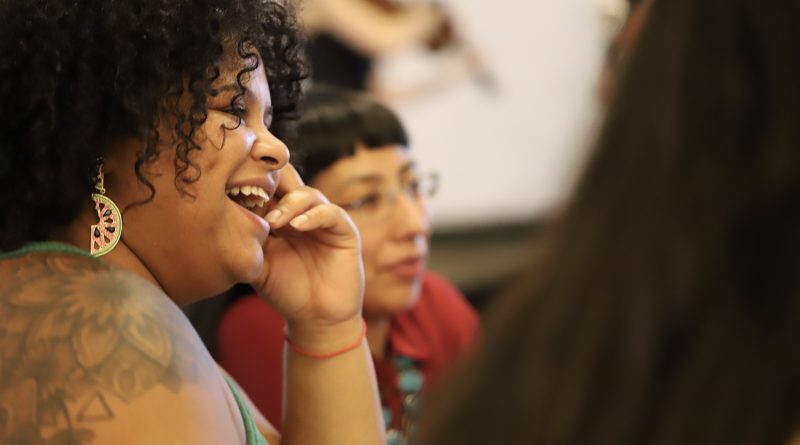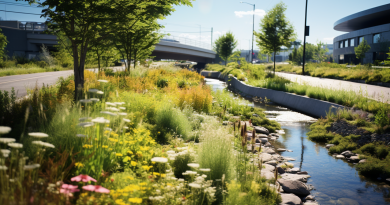POCACITO Transatlantic Forum on Climate and Environmental Justice
This weekend, I returned from a few days in my old stomping grounds as I helped put together a symposium on climate and environmental justice with POCACITO at Georgetown University. The event brought together policymakers and politicians, advocates and activists, and a thoroughly diverse assortment of humans from all around the country– and, indeed, the world- to listen and learn about competing definitions of justice, progress, and climate action. Attendees represented countries from Afghanistan to Germany to Nigeria to the Navajo Nation, and we enjoyed sumptuous feasts (vegan, of all things!).
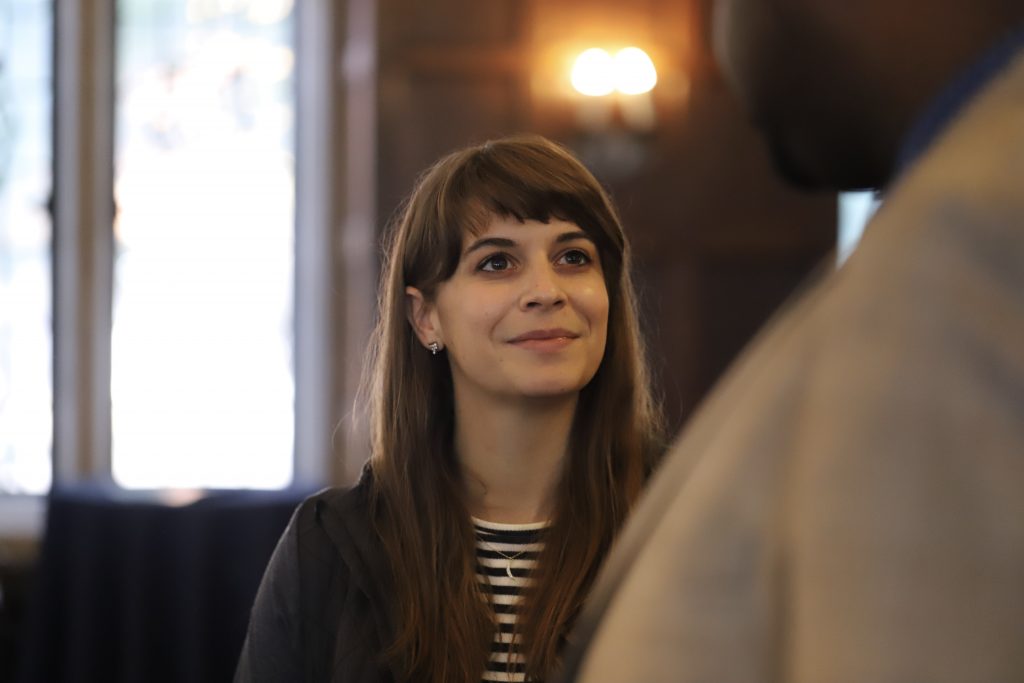
POCACITO, you may recall, led contingents of Americans to study sustainability and climate action in Europe, and vice versa, and has built a truly global community of professionals, advocates, and all manner of changemakers. This event was specifically focused on topics of justice and equity to bring the focus from the top-down lens that is more common in the climate discourse, to a focus that emphasizes the ground level of human communities at the front line of the climate struggle. This involved amplifying the voices of populations that are often disregarded in the discourse, but especially populations that are most vulnerable to climate change and environmental degradation.
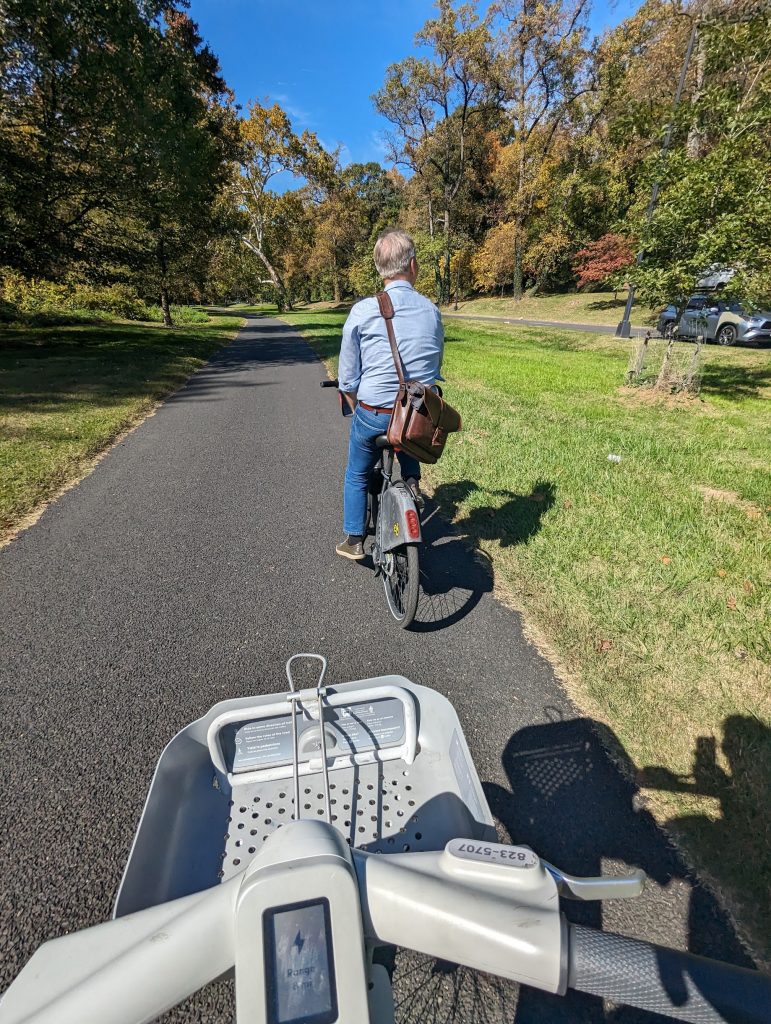
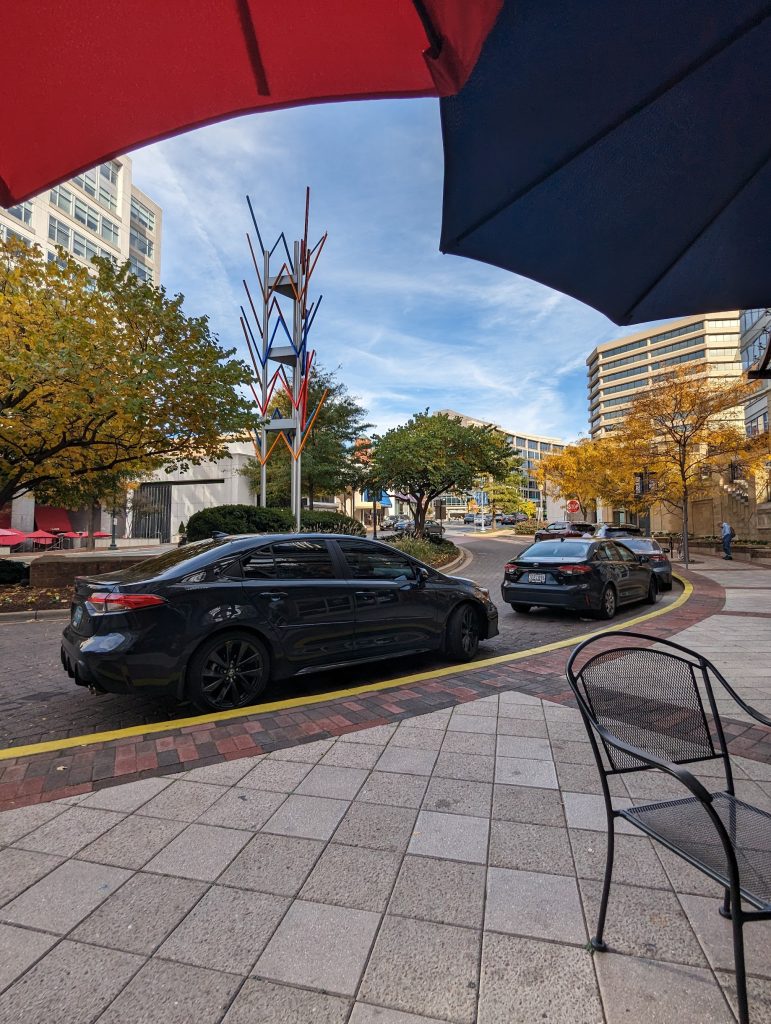
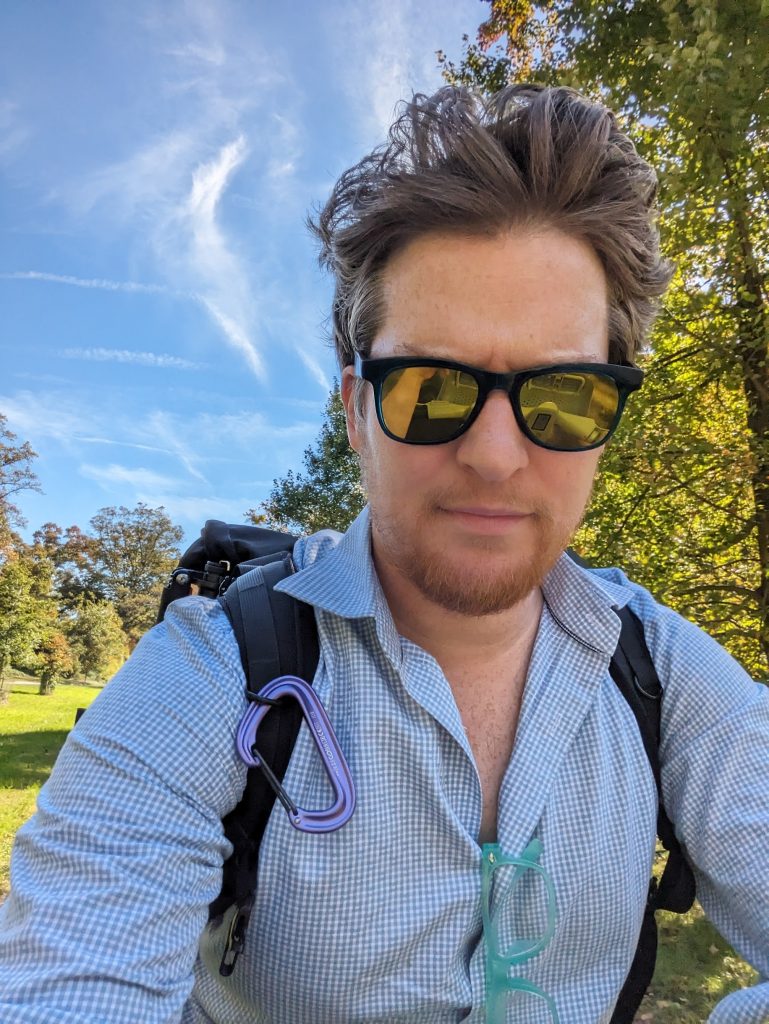
Thursday. On setup day, Max and I ran around to procure some last-minute odds and ends including some drinks, snacks, and a peculiar audio adapter for the Røde wireless microphones we were using for the event. After dropping stuff off at Georgetown, we opted to bike from Georgetown back to Friendship Heights on an unseasonably warm day (I figured between 16 and 27% higher than the seasonal average, depending on how you figure it).
We took Lyft eBikes, which we do not have in Detroit, and my nine-mile range managed to get us the whole way, including a pretty rough section of trail north of Military Rd. That road, by the way, turns out to not be terribly bike-friendly, nor is Connecticut Avenue, as I was reminded when a frat boy in a Mercedes attempted to run me off the road. We ended up at Whole Foods in Friendship Heights, which features a charming outdoor plaza with seating and what one might describe as an attempt at public art. Please don’t rat me out, as the app kept telling me that I was outside of the riding zone while in Rock Creek Park! I’m sorry (not sorry).
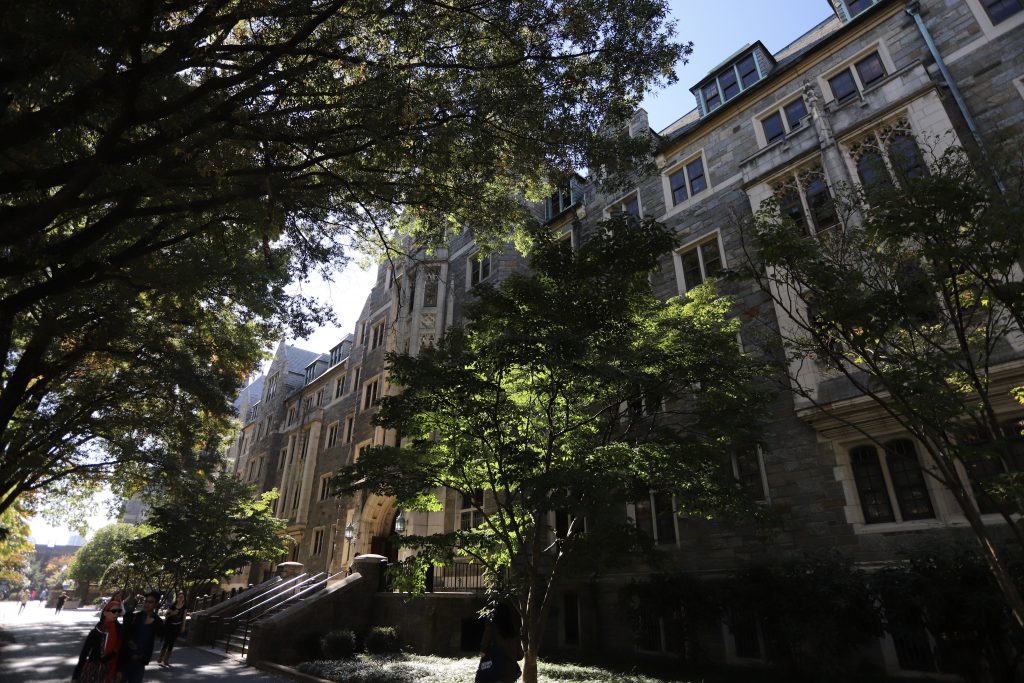
Above: A real, not-AI-generated photo of Copley Hall on the campus of Georgetown University in Washington, DC. To the right of this image is what the map describes as “Red Square,” a (curiously-named for a Catholic University) plaza where students set up tables to promote programs ranging from an a capella group to a right-to-life group (gross). Georgetown, similar to my alma mater of American a couple of miles to the north, boasts an impressively verdant campus of stately buildings and elegant walkways.
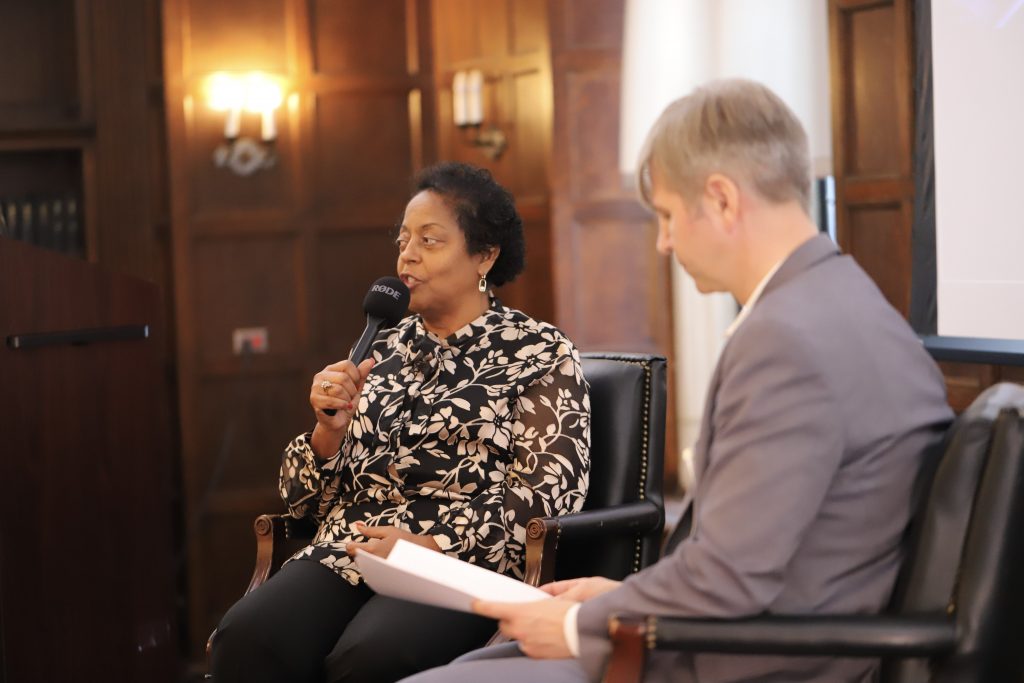
Above: Sharon Lavigne visited from St. James, Louisiana, where she lead advocacy efforts around environmental protection. Lavigne, whom I met in February 2020 (right before the world ended) with my colleague and POCACITO alumna Jane Patton (with CIEL), has been organizing efforts to try and block the construction of a Formosa plastics plant. It’s not the industry, per se, she says– the lower Mississippi Basin is full of industrial development- but rather the fact that these massive industrial facilities are built without sufficient environmental protections, leading to high rates of cancers while failing to ameliorate poverty and local disinvestment. Lavigne points out that even in the racially divided demographics of the area, these facilities seem to cluster in majority Black geographies. When I visited, we passed by a number of refineries, Entergy power generation facilities (both nuclear and fossil gas), Nucor, and more.
What was perhaps most interesting about her explanation of how she got involved in this work was that it was largely by accident– by virtue of realizing that her community was quite literally being poisoned by industrial development.
“When I moved here,” she said, “I thought we were living the dream. We weren’t sick […] Now, I’m at the doctor all the time.”
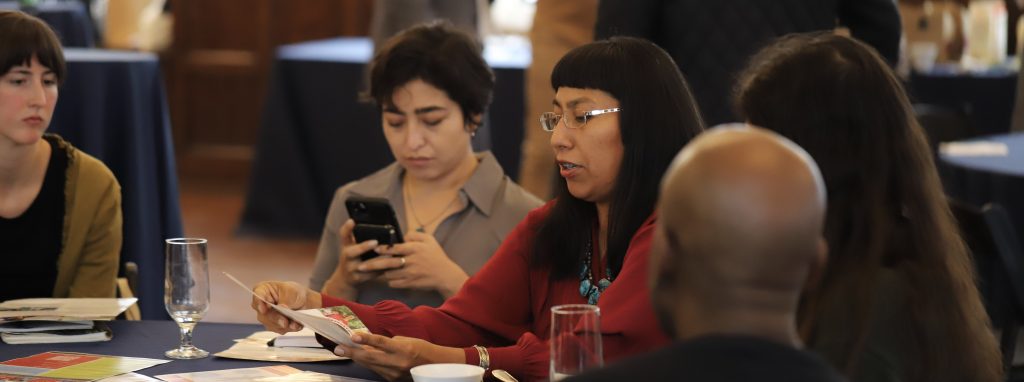
Above: Shaina Oliver, a Navajo (Diné) activist with Moms Clean Air Force in Colorado, leads a table discussion at POCACITO. Oliver has advocated for increased transparency and environmental controls around a number of large industrial facilities. As a panelist, Oliver talked about the ways in which Navajo and other native cultures were fundamentally at odds with settler policy that pushed them off their land and forced them into unfamiliar systems of economy, education, and law. This deliberate expropriation set the stage for subjecting native communities to ongoing injustices that continue through the present day, especially around questions of water rights and energy access.

Nicole Horseherder, a fellow Diné activist who leads Tó Nizhání Aní (“Sacred Water Speaks”) mentioned many of these same points from angles of energy access, as many Navajo lands host some of the country’s only proven reserves of uranium as well as a great deal of coal and other fossil fuels. These points were prominent in the book Power Lines, which deals with a lot of these same questions of extraction and expropriation.
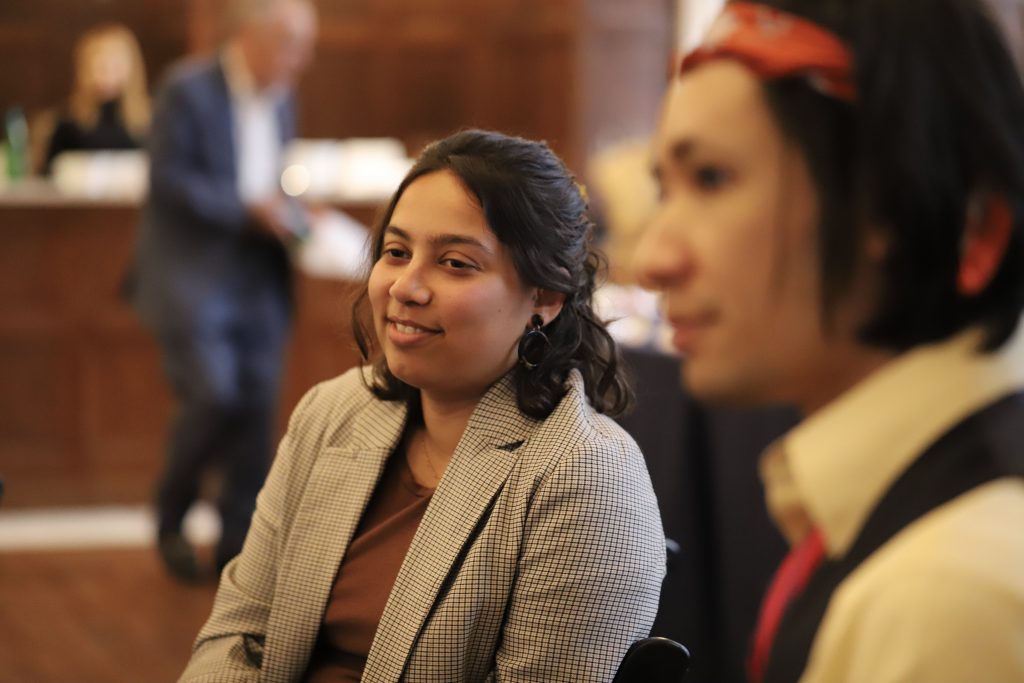
One comment referred to the “permanent narrative of scarcity” that is instrumentalized or even weaponized in these discussions. This is often framed around things like, “we need these resources, and this is the only [or best] way for your community to share in the prosperity that will result.” But this is often couched in Reagaonomics, and we have nearly half a century of evidence that this doesn’t actually work. Andrew Needham points this out in Power Lines, where he examines tension between Navajo advocates who want to use the profits from the mining and others who are staunchly opposed as a result of the concomitant environmental degradation.
Experience Creates Awareness
From across the pond, Gülcan Nitsch, a second-generation Turkish German, talked about the importance of enviromental justice through the angle of people most affected by environmental topics who can become advocates because they experience the ill effects of things ranging from pollution to noise. I thought back to a comment at NetImpact many moons ago, in which a presenter from Lime talked about how scooter riders have to experience things like potholes and dangerous street design, and this can turn them into advocates because experience creates awareness. We really do not think about things that are off our radar, for the most part. Experiencing these things brings us closer to the discourse about how to solve it.
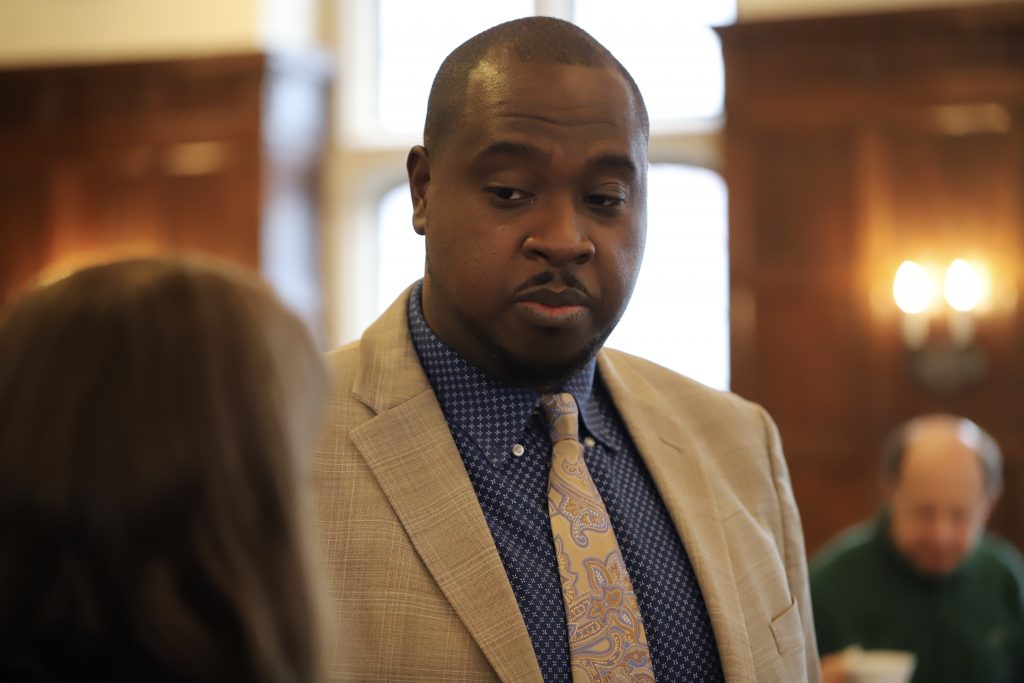
Below: “It’s an environmental justice issue, that we’re surrounded by 15,000 lakes and some people are drowning [more than others],” said Minneapolitan Analyah Schlaeger Dos Santos (left), an environmental justice advocate who works with youth organizing and Interfaith Power and Light in North Minneapolis. Analyah has worked with dozens of youth in North Minneapolis on programs that essentially attempt to blend workforce development with environmental justice, and she is inspired by what they have been able to accomplish to engage the community and create momentum for positive change.
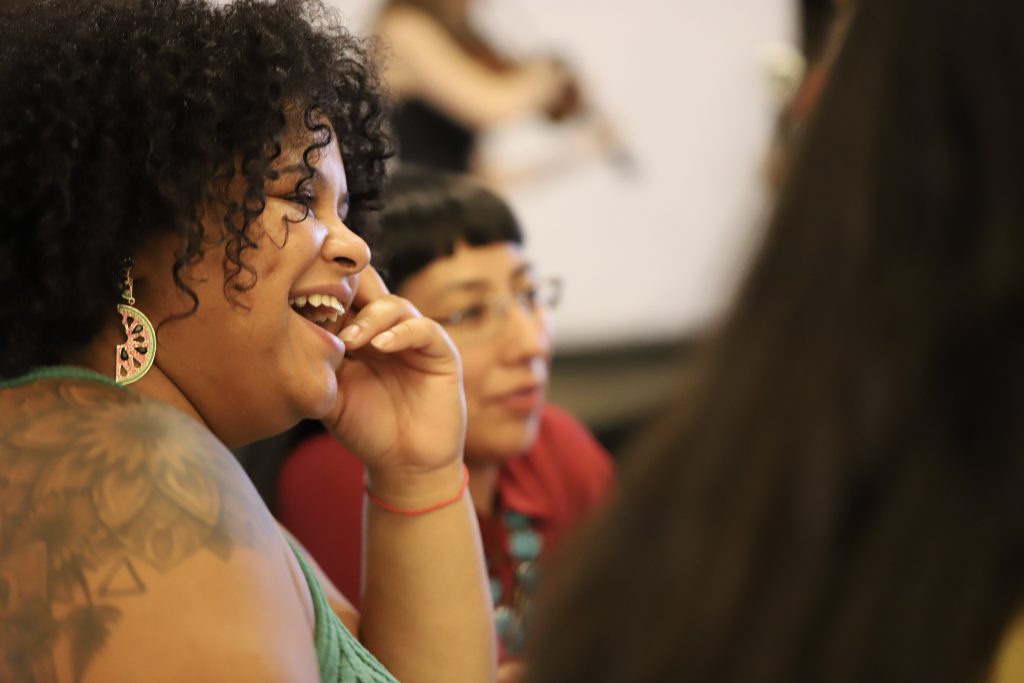
This is by no means an exhaustive summary of the summit, and I’m going to be looking through all of my notes, recordings, and photos, probably for a second article. I’d encourage everyone to continue following the work of POCACITO (and, of course, The Handbuilt City, chronicling it!) and we’ll keep building global momentum for community solutions to climate and environmental justice!

